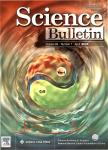A water-evaporation-induced self-charging hybrid power unit for application in the Internet of Things
A water-evaporation-induced self-charging hybrid power unit for application in the Internet of Things作者机构:School of PhysicsUniversity of Electronic Science and Technology of ChinaChengdu610054China College of SciencesNortheastern UniversityShenyang110819China
出 版 物:《科学通报:英文版》 (Chinese Science Bulletin)
年 卷 期:2019年第64卷第19期
页 面:1409-1417页
核心收录:
学科分类:080801[工学-电机与电器] 0808[工学-电气工程] 08[工学] 0804[工学-仪器科学与技术]
基 金:supported by the National Natural Science Foundation of China(11674048) the Fundamental Research Funds for the Central Universities(N170505001,and N160502002) Program for Shenyang Youth Science and Technology Innovation Talents(RC170269)
主 题:Self-charging Hybrid power unit Water evaporation Nanogenerator Supercapacitor Internet of Things
摘 要:A self-charging hybrid power unit has been developed by integrating a water-evaporation-induced nano- generator with a flexible nano-patterned supercapacitor. The nanogenerator can harvest environmental thermal energy and mechanical energy through the water evaporation process, and the supercapacitor can be charged simultaneously. The former offers stable electrical power as output, whereas the Ppy- based supercapacitor shows a capacitance of 12.497 m F/cm^2 with 96.42% retention after 4,000 cycles. After filling the power unit with water as the fuel, it can be fully charged in about 20 min. The power unit can be flexibly integrated with electronic devices such as sensor nodes and wireless transmitters employ- ing the Internet of Things. This new approach can offer new possibilities in continuous future operation of randomly distributed electronic devices incorporated in the Internet of Things.



